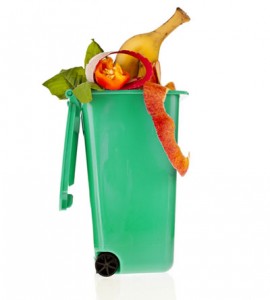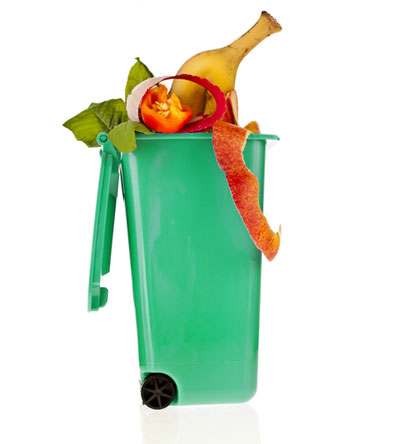You’ll never hear me tell my kids to join the “clean plate club.” My father used to always push back when my grandparents told me to clean my plate. Somewhere in between their depression-mentality and his realization that giving your kid a stomachache and making them overeat really didn’t accomplish anything lies that reasonable parental desire to help curb our kids’ seemingly innate tendency to waste food.
Whether you’re that parent that really won’t let your kid eat anything else except what is served for dinner, or you’re that parent who gives in and let’s them have a bowl of cereal, or, heaven forbid, the one who becomes a short-order cook, most of us cringe when our kids waste the food they’re served or serve themselves.
How convenient then that we can use Tu Bishvat, the Jewish “Birthday of the Trees,” as an opportunity to reduce their wastefulness (Tu Bishvat is from sundown on Wednesday to sundown on Thursday). Kids really get a kick out of this birthday concept and want to learn more. If the trees are so special that they deserve their own holiday, we should have respect for the food that comes off of them and be sure to use it respectfully.

Have you ever become frustrated at how much your kids waste or wondered if it really is as much as you think it is? Here’s what you can do at home:
1. Introduce the concept of a contest for Tu Bishvat and ask them to practice wasting as little as possible for the next few days. Starting today, take two buckets (they can be small like you would use to pick berries) and tell your kids that at the end of the meal a contest between siblings or kids vs. parents will begin. One bucket is for pesolat (waste) and one for klepot, things you can’t eat but can compost, like peels and shells. I guess if you don’t compost you wouldn’t even need the second bucket, but I think it is a good way to illustrate the concept of composting to kids. Let them experience the wonder of the way our world works. Peels and shells can actually help grow and fertilize their future food! Nature does design some waste. They can prevent other waste by taking only a little food at a time.
2. Weigh the buckets at the end of each meal, either on a food scale or a regular scale if that will work better. You can keep a chart on the refrigerator or corkboard and record the weights at the end of each meal. Whoever has the least (total or even most improved) waste at the end of the week wins a prize! Well, that’s one way to do it. What might be healthier for family unity is to stop the measuring right before Shabbat, review the week’s accomplishments and then provide a Shabbat treat for the entire family as a reward for everyone’s hard work. Telling kids it is a contest all week will keep them motivated, but then keep it fun if you throw out the winners and losers concept in the end. Everyone worked hard and everyone wins.
I learned about the bucket concept at the recent Hazon Food conference at the Isabella Freedman Jewish Retreat Center in Falls Village, CT. There, the Teva Learning Alliance practices this year round with the school groups they educate.
Hopefully this week-long contest will instill new habits in your family. If you feel your progress sliding, you can take a different approach and have kids win prizes (dollar store toys or outings with mom and dad, not candy!) if they guess the weight of the waste after each meal. Be sure you have a scale that can weigh less than a pound because you don’t want to encourage the kids to waste more in order to have something to measure. Zero pounds is also an option and can also qualify for a prize!
I’ll let you know how it goes for me and I want to hear back from you too, OK?
p.s. If you don’t compost or have a neighbor who does, throw out the food each day after you’ve weighed it. Your house will smell better that way!

